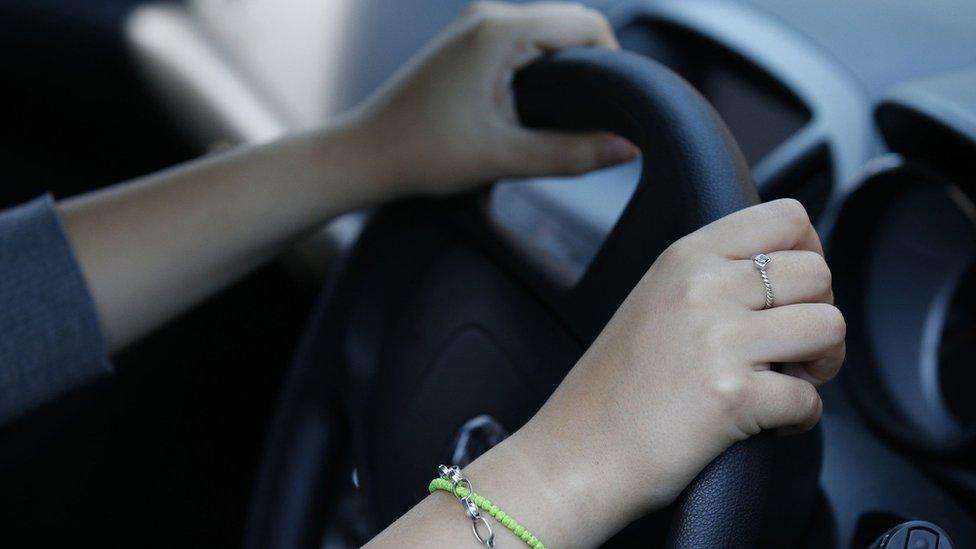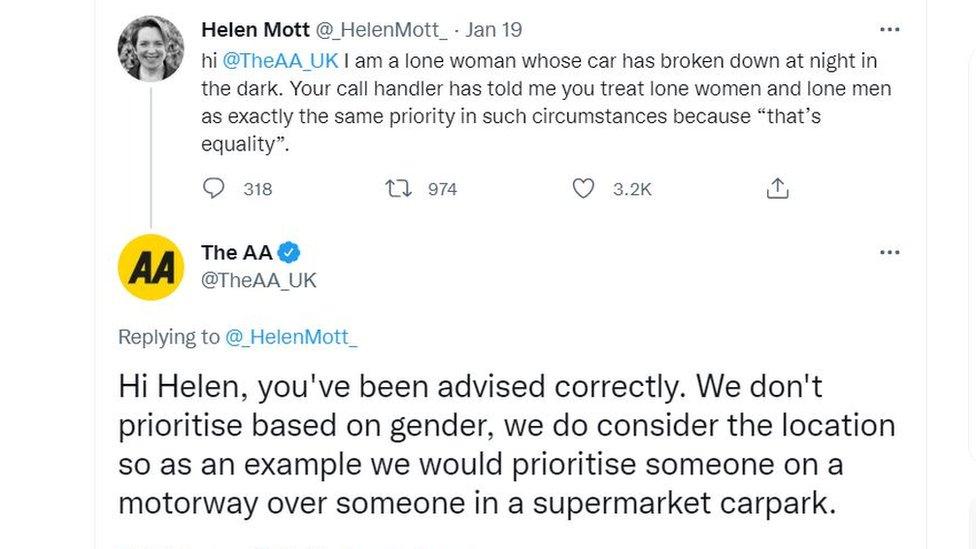Lone women drivers are top priority, says AA after tweet backlash
- Published

The AA says the safety of women is "100% at the top" of its priorities after claims it no longer prioritised call-outs to lone female drivers.
The firm faced a backlash after customer Helen Mott was told lone male and female drivers were given the same priority as "that's equality".
Responding to her story on Twitter, the AA said it didn't "prioritise based on gender" but would consider the location of where someone had broken down.
The company later apologised.
Ms Mott posted about her experience on Tuesday, believing the long standing practice was still in place.
She wrote: "I am a lone woman whose car has broken down at night in the dark.
"Your call handler has told me you treat lone women and lone men as exactly the same priority in such circumstances because 'that's equality'."
The AA replied to her tweet saying she had been "advised correctly".
They added: "We don't prioritise based on gender, we do consider the location so as an example we would prioritise someone on a motorway over someone in a supermarket car park."
'I'm afraid'

The response attracted a lot of attention on social media, including from Labour MP Rosie Duffield.
Speaking to the BBC, Ms Duffield said: "The AA calls itself the fourth emergency service. We just need to know that at that end of the phone is someone prioritising our safety.
"We are more at risk physically than men in that situation. It's just a fact, I'm afraid."
The MP wrote to the company's president, Edmund King, saying the reply had "provoked a huge response from women, and many men, who had understood that a lone woman would always be given priority... due to the reality of gender-based violence and the current huge publicity surrounding violence against women and girls."
Replying to her letter, Mr King, said "the safety of women, and all vulnerable customers, is 100% at the top" of its priorities.
He said the AA had "reminded staff" of its "vulnerable customer processes and procedures", and said if there was a breakdown involving a lone woman, "where there is any concern raised by the customer, they receive the highest level of care and priority."
Green Flag and the RAC both said they prioritised people in vulnerable situations, including lone women.